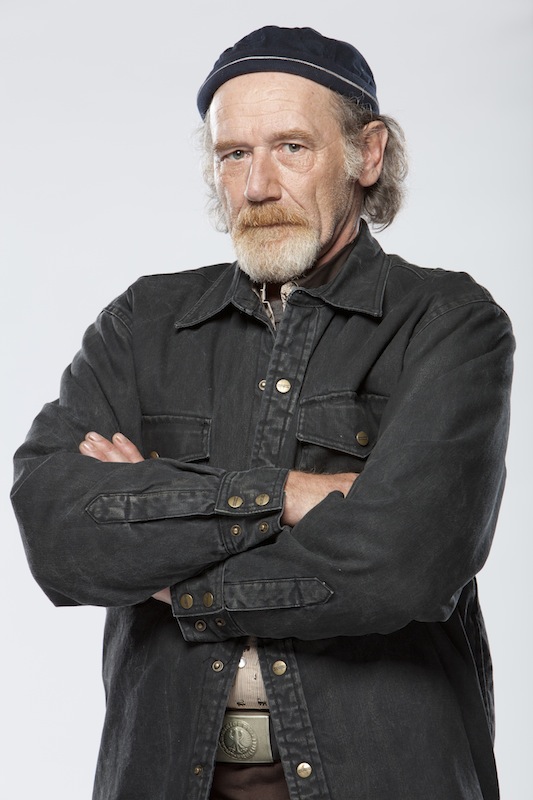Happy 20th Anniversary, "North of 60"!
Reminiscences--Part 2
Tom Cox
Timothy Webber
Barbara Samuels
Tom Cox
As one of the producers of "North of 60," Tom Cox helped shepherd the show through six seasons and five movies. He's now a principal at SEVEN24 Films, creators of the popular family drama "Heartland."
These are among thousands of vivid memories from over six hundred days of filming and an additional twelve cumulative months of prep and wrap over a five-year period.
There were humorous moments, but as I recall them I realize that in most cases, ya just had to be there...
"North of 60" changed the life of every person who worked on it; in many cases, certainly mine, profoundly. I believe the series changed the way audiences without northern experience viewed the North, and allowed northerners and those with any northern experience to recognize themselves, to feel that they had a voice and authentic presence in the Canadian cultural landscape.
What am I doing now? Our series "Heartland" is filming its sixth season. I rarely get to set these days--and when I do go, I avoid the lunchroom.To "North of 60" fans: Thank you!
Timothy Webber

(Click on photo for larger image.) |
Played by Timothy Webber, band manager Harris Miller navigated the Kenidi-Golo feud and other Lynx River politics as he sought to keep the town solvent and functioning effectively.
My strongest memory is fishing in the pool below Albert's cabin on the Elbow River--and catching many fish there over the years. I would run out there at any time between scenes with my fly rod. Didn't catch a fish every time, of course, but caught and released many trout.
Barbara Samuels
We never saw her on screen, but without Barbara Samuels and her writing partner Wayne Grigsby, "North of 60" would have never existed. As co-creator of the show, she not only wrote scripts, but also helped create the tone and dramatic infrastructure of the show--a heritage that allowed "North of 60" to continue to thrive even after she and Wayne left to develop "Black Harbour."
MemoriesThe show was a life-changing experience. It was the first time out of the gate for Wayne and me as writer/producers. We had the freedom to pretty much do what we wanted dramatically...completely supported by the CBC. I had no idea how rare that situation would prove to be in television. We'd developed the concept because we were looking for a different landscape, different voices. We'd been writing white urban chatter for a few years, and we were bored with it. But there was a whole other level to the series, and I don't think any of us were prepared for it.
It's that thing about the images in popular culture only reflecting the "dominant culture." They exclude most of the world. You understand it intellectually, but until you witness the emotional impact it has on people, you haven't really understood it. So this show hit the air, and suddenly all those people you usually saw in the background of some period piece moved into the foreground. And as Tom Jackson would say, without the feathers and the beads. This was a contemporary drama about ordinary people struggling to get on...but refracted through a whole different lens.
The response of aboriginal viewers was overwhelming. They'd been "documentaried" to death, but this was a dramatic reflection of their lives, told through really complex characters. And it affected a lot of the non-native audience, whose perceptions of First Nations' life had been mostly shaped by news reports...nothing but mass tragedy and despair. Now they were watching a show about characters they could identify with. I remember listening to an argument within a multi-ethnic focus group--none of its members were aboriginal, but they were all really proprietary about Michelle. That blew us away.
ImpactThe show didn't trigger massive social reform, or repair centuries of damage. But it did change some perceptions, and I think that helped to change other things. It profoundly changed the way I thought about drama, about my job. It created some lasting friendships in my life. And it affected just about all the work I've done since. For that alone, I owe everyone involved with the series an enormous debt of gratitude.
The series showcased a lot of talent (both behind the camera and in front of it) that hadn't had mainstream access before. And it proved there was an audience for that talent. First Nations artists went on to create their own work for television and film, and a whole generation of people followed these leaders into the mainstream. But it's still tough to find a home for drama that's not predominantly about white people; just take a look at the North American primetime TV schedule, including cable. As you know, APTN's producing some very cool stuff these days; its penetration isn't massive, but at least it's there.
The interest in First Nations talent was inevitable, but I think "North of 60" helped to usher in a new era--now that the talent was exposed, it couldn't be ignored.
FansIt's a marvel to me that the fans are still out there, and still so supportive. It's always gratifying when people respond to your work; the fact that there's still interest in the show twenty years on is amazing. I'm more appreciative than I can say.
Return to Nof60 Anniversary main page
